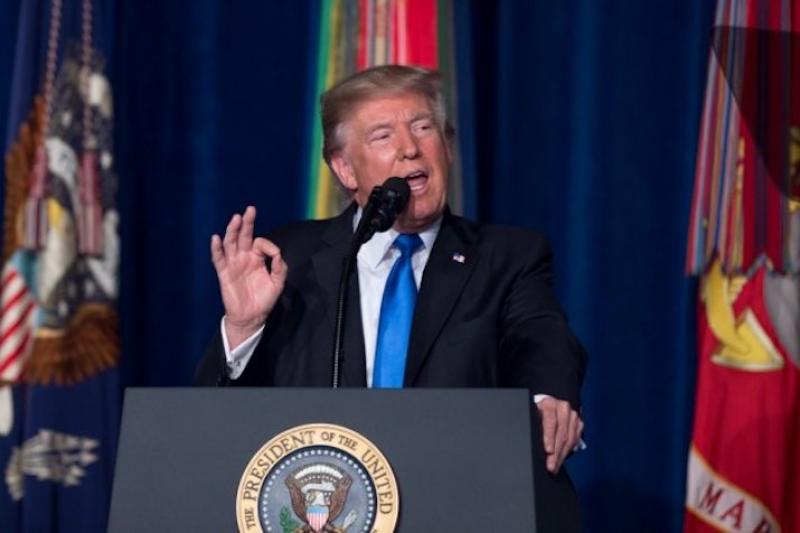Q&A: The Impeachment Inquiry with DU Law Professor Alan Chen

Most lawmakers are still out of town for a two-week recess, but the impeachment inquiry continues to move full steam ahead despite the break. Democratic House Speaker Nancy Pelosi initiated the formal impeachment inquiry of President Donald Trump on Sept. 24th after learning details of a call between Trump and Ukraine’s president Volodymyr Zelensky. Democrats say Trump violated the Constitution by asking a foreign leader to investigate a political rival, while most Republicans maintain there was no pressure or quid pro quo, making the call harmless.
Constitutional law expert and DU professor Alan Chen shared his expertise on where the impeachment inquiry goes from here.
What does the Constitution consider impeachable offenses? What does a president have to do to get in this situation?
The Constitution says the president may be impeached for treason, bribery, or “high crimes and misdemeanors.” Although this makes it sound like a criminal proceeding, impeachment is really a political process, not a criminal prosecution. At the same time, the framers of the Constitution did not want impeachment to be used for purely partisan showdowns.
The Constitution includes no definition of “high crimes” or “misdemeanors,” so that is up to the House of Representatives to decide. When he was a member of the House, Gerald Ford famously said that “an impeachable offense is whatever a majority of the House of Representatives considers [it] to be at a given moment in history.”
While Ford was technically accurate, we do have a little history to go on. The articles of impeachment for President Nixon and President Clinton included charges of obstruction of justice. Moreover, there is historical evidence that the framers of the Constitution were concerned with presidential interference with the “administration of justice” (a phrase found in the Declaration of Independence). James Madison wrote of his concerns about the prospect of foreign influence on a president, and George Mason was worried about corruption and bribery in presidential elections.
Where does the impeachment inquiry stand right now?
According to public statements by Speaker Pelosi, several different committees are investigating possible impeachment charges against the president. Ultimately, those are likely to be brought before the House Judiciary Committee, which is where impeachment articles are usually drafted.
What happens next?
If, after its investigation, the House committees determine that the president has committed one or more impeachable offenses, one committee will be assigned to draft articles of impeachment, which are the equivalent of counts in an indictment. Those articles will be presented to the full House for debate and vote. If a majority of the House votes in favor of any article, the House then appoints House “managers” of the impeachment to present the case to the Senate at an impeachment trial.
The proceeding is then immediately transferred to the Senate, which has a set of rules that it must follow in administering the proceeding. If the impeachment proceeds to a trial, then the Senate would hear evidence in some form, and then vote on whether the president has committed an impeachable offense.
The Constitution requires a vote of two-thirds of “the members present” to convict an official and remove him or her from office. Under the current configuration of the Senate, assuming all Democratic senators and the two independent senators vote to convict, 20 Republican senators would have to join them to reach the two-thirds majority.
If the articles of impeachment make it to the Senate, is Senate Leader Mitch McConnell required to hold a trial? What are the rules for the trial?
There is nothing in the Constitution that requires the Senate to hold a trial. However, the Senate rules governing impeachment proceedings, which were put in place during President Clinton’s impeachment, are still applicable today. Those rules appear to require that the Senate hold some form of hearing, as Majority Leader McConnell has publicly indicated. That doesn’t necessarily mean there will be a full-blown trial, though. It’s possible that a senator could move to dismiss the impeachment charges against President Trump, and the Senate might vote to do so. The wild card here is that it’s not entirely clear whether Sen. McConnell has the authority to make all procedural decisions. In the case of the impeachment of a president, the Constitution requires that the chief justice of the United States Supreme Court “preside” over the Senate trial.
In the two previous impeachments of U.S. presidents, the Senate was not controlled by the president’s party. How does a Republican Senate change the dynamic?
Of course, that dynamic is critical. But even when the Senate was controlled by the opposing party, those presidents (Andrew Johnson and Bill Clinton) were acquitted. If the impeachment goes to a Senate trial, the Senate must vote by a two-thirds majority to convict the president and remove him from office, so it’s difficult to see a path toward an actual vote to remove President Trump.
For more from Alan Chen, follow him on Twitter @ProfAlanChen




